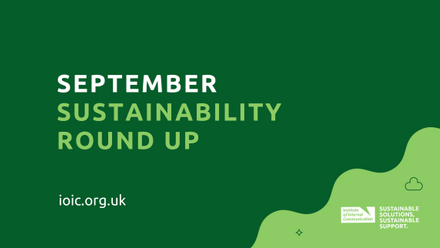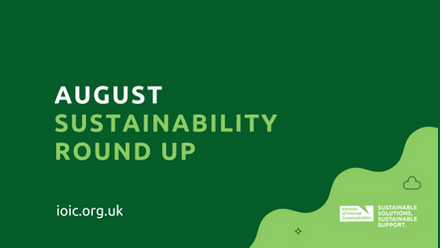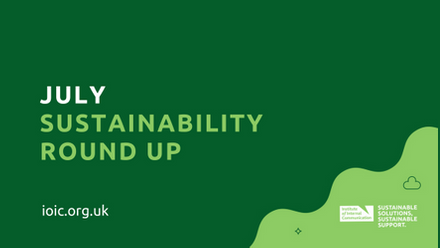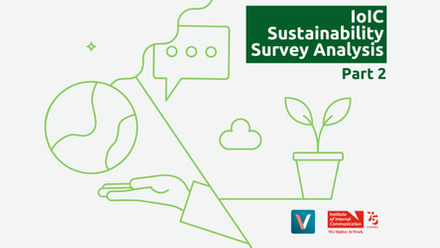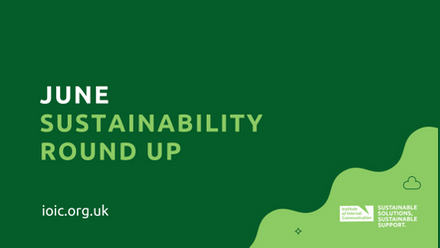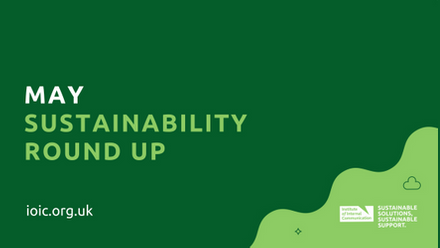Environmental sustainability
While the cost of climate action may seem high, the cost of not doing anything is always going to be much higher, and we shouldn’t lose sight of that.
Europe is now the fastest warming continent, heating at a rate significantly above the global average.
The mortality rate from unprecedented hot weather has risen 30% in Europe in two decades, the joint State of the Climate report from the EU’s Earth-watching service Copernicus and the World Meteorological Organization (WMO) recently found.
Experts maintain that for many of these deaths, the heat-trapping pollutants from fossil fuel emissions that clog the atmosphere would have been the difference between life and death.
A recent study by Germany’s Potsdam Institute for Climate Impact Research projects that the annual cost of rising temperatures, heavier rainfall and more frequent and intense extreme weather will be a staggering $38 trillion by 2049 – and that’s under a medium-emissions scenario.
These stats are not only eye-watering but enough to send our eco-anxiety levels soaring over what lies ahead. But as professional communicators, we’re going to need to strike the right balance when it comes to sharing sobering truths with colleagues – without them losing hope that we can still all be the change we need.
Economic sustainability
More and more organisations are tuning into the benefits of acquiring B Corp status – there are now nearly 8,000 Certified B Corps employing over 700,000 workers in 93 countries.
But proving your commitment to people and planet (in addition to profit margins, of course) can come with a hefty price-tag – up to £50K, depending on an organisation’s bottom line. That means our finance colleagues play a pivotal part when it comes to assessing the advantages of attaining B Corp certification.
This article explores how CFOs can weigh up profitability with the cost and complexity of being more sustainable to ensure that it’s all worth it in the long run.
As its author states, “the shift towards ESG practices is a delicate dance; it can cause considerable upheaval if not managed effectively”. So as IC practitioners, we can support our finance colleagues in this, by helping to communicate the impact of these changes on both culture and revenue.
One FD quoted in the piece suggests these might include “updates on initiatives, where we are versus where we said we would be, new ideas, and where we are falling behind – all shared monthly via a newsletter, weekly in individual team meetings and quarterly at all company catch-ups.”
Community sustainability
The climate crisis is increasingly being viewed through the prism of a human rights crisis.
This is in no small part due to growing awareness of how certain communities or groups of people are more susceptible to the more severe dangers of man-made climate change – such as the greater risk to life brought about by extreme heatwaves.
A ruling this month by the European Court of Human Rights found that Switzerland’s climate policy was insufficient to protect the human rights of a group of older women, who’d brought the action against their home country.
The Swiss verdict lays the foundation for litigation on behalf of applicants representing communities who feel especially vulnerable to the effects of the climate emergency – and who feel their right to live safely has been violated.
It also means the other 45 Council of Europe member states are likely to face similar cases in their own national courts – cases that they stand a good chance of losing.
Organisational sustainability
Internal stakeholders each have their part to play when it comes to contributing to organisational targets.
So, how can we motivate colleagues who don't necessarily prioritise sustainability as part of their day-to-day working lives?
This article from Sodexo’s Director of Sustainability and CSR suggests three key tactics for ensuring everyone’s on the same page when it comes to achieving our green goals.
This includes offering sustainable options as the go-to choice, linking sustainability efforts to personal experiences and integrating sustainability into job roles.
As she says, “empowering your employees to champion sustainability practices within your organisation isn’t just about having eco-friendly initiatives, but fostering a culture where sustainability becomes ingrained in everyday operations and personal values.”
Personal sustainability
CO2 emissions from UK aviation activity are heading back to pre-pandemic levels – with the resultant pollution set to reach a record high in 2024.
But we’ve been reading more and more about smart green transportation innovations that give us some grounds for optimism when it comes to how we all might be getting around in the not-too-distant future.
The UK government has stated its aim to see ‘flying taxis’ in operation by 2028. Pretty ambitious stuff, but its new action plan seeks to ensure that the (considerable) infrastructure required will be in place to support exciting greener, quieter aviation technologies by then.
These electric vertical take-off and landing aircraft are known as eVTOLs. They essentially take off and land like a helicopter and cruise like a plane. They’ve been made possible thanks to rapid advances in battery technology that mean they’re light enough to stay in the air and powerful enough to cover the distances needed.
They’re currently awaiting the green light from regulators for commercial use – they’re undergoing the Civil Aviation Authority (CAA) authorisation process – after which they may be revolutionising greener modes of travel in a city near you soon.

